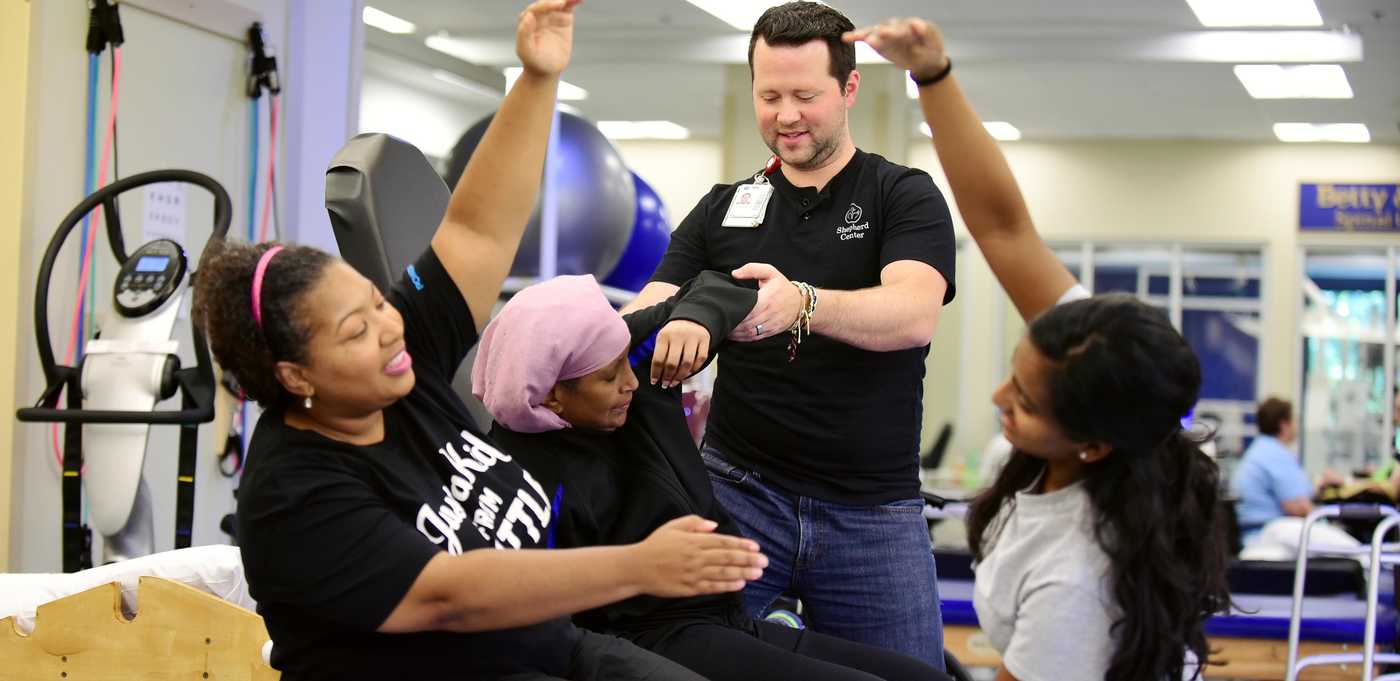Health and Safety Concerns
Safety is a very important consideration for people living with a multiple sclerosis. The neurologic symptoms of sensation change, movement alterations, symptom fluctuation and fatigue can increase risk of injury. While it is important to promote independence, it is critical to ensure safety in your environment. This section will review safety measures in the home, with activities, and other health conditions related to MS symptoms.
Remember, it is important to report any new or changing MS symptoms such as difficulty walking, increase in falls, bladder symptoms or difficulty swallowing. Your health care provider will determine if further evaluation and treatment is needed.
Primary Prevention
- Establish a primary care physician for health screenings and to address non-MS related concerns such as hypertension, diabetes and cardiovascular disease. Research has shown that proper management of other health problems, or “comorbidities,” can have a positive impact on symptoms of MS.
Vaccines with MS
- Vaccines are an integral part of preventing bacterial and viral infections.
- Please contact your neurologist about current vaccine recommendations for people with MS.
- Visit the National MS Society to learn more information about vaccinations for people with living with MS.
- Watch a video answering Top Questions About COVID-19 and the Vaccine featuring Shepherd Center neurologist Ben Thrower, MD.
Skin Care
- Individuals with multiple sclerosis are at risk for skin injury due to the changes in sensation and reduced physical mobility leading to increased pressure to specific areas, such as the sacrum and sit bones.
- Learn more about symptoms, management and prevention of skin injury.
Home Safety
- View Shepherd Center’s general home safety recommendations and home modification suggestions.
Activities & Exercise
While exercise activities are very important in your life, please remember to consider some of the safety concerns while having fun.
- Protect your body from bruises, cuts and injuries while out "playing" by wearing the proper clothing.
- Choose the right type clothing for the temperature and the type of activity.
- Wear supportive and full coverage shoes, even in the water, to promote safety and stability.
- Apply protective padding for contact activities.
- Be mindful and protect yourself from exposure to heat and cold.
- Utilize activity pacing and cooling strategies to prevent yourself from overheating (see our Energy Conservation and Managing Heat Intolerance videos).
- Sit at least six feet from campfires and space heaters to avoid burns.
- Apply sunscreen when outdoors even if it is cool outside (you can get sunburn skiing!).
- Check your medicines to see if any cause a sensitivity to the sun (photosensitivity).
- Do not remain wet or damp for too long, such as sitting on wet towels, damp wheelchair cushions or wearing wet clothes. Excess moisture can cause skin problems, irritation and breakdown.
- Protect yourself from insect bites as they can become infected and cause skin problems.
Transfers and Wheelchair Safety
Safe Transfers
Body Mechanics
- For caregivers and family members assisting with transfers, proper body mechanics is important in preventing injury. Our colleagues in the spinal cord injury department have several tips for proper body mechanics that are equally relevant for assisting people with MS.
Emergency Preparedness
- Preparing for an emergency is often overlooked until an actual emergency, such as a house fire, occurs. For those with physical and/or cognitive disabilities, it is especially important to have a plan ahead of time. Learn important safety tips and how to stay prepared in case of an emergency.


